
New Microbes and New Infections
Scope & Guideline
Advancing knowledge on the frontlines of infectious diseases.
Introduction
Aims and Scopes
- Emerging Infectious Diseases:
The journal emphasizes research on newly identified infectious diseases and outbreaks, highlighting their epidemiology, pathogenesis, and clinical implications. - Zoonotic Infections:
A significant focus on zoonotic diseases, emphasizing the transmission from animals to humans, including surveillance and prevention strategies. - Antimicrobial Resistance:
Research addressing the growing threat of antimicrobial resistance, including studies on resistant strains, mechanisms of resistance, and strategies for mitigation. - Public Health and Policy:
The journal publishes studies that evaluate public health interventions, vaccination strategies, and health policy implications related to infectious diseases. - Microbial Genomics and Taxonomy:
A core area includes the genomic characterization of pathogens, aiding in the understanding of their evolution, virulence, and resistance patterns. - Infection Control and Prevention:
Research on infection prevention strategies in clinical and community settings, including surveillance systems and outbreak response.
Trending and Emerging
- Impact of Climate Change on Infectious Diseases:
Recent publications increasingly address the implications of climate change on the emergence and spread of infectious diseases, reflecting growing concerns about environmental health. - One Health Approach:
An emerging trend is the integration of the One Health framework, emphasizing the interconnectedness of human, animal, and environmental health in the context of infectious disease research. - Long COVID and Post-Infectious Syndromes:
There is a rising interest in the long-term effects of COVID-19 and other infections, leading to studies that explore post-infectious syndromes and their management. - Technological Innovations in Disease Tracking:
The incorporation of technological advancements, such as AI and machine learning in disease surveillance and outbreak prediction, is gaining traction in the journal's publications. - Global Vaccine Equity and Accessibility:
Emerging discussions around vaccine distribution, equity, and access in the context of global health crises highlight the journal's commitment to addressing health disparities.
Declining or Waning
- Traditional Infectious Diseases:
There seems to be a decreased emphasis on classical infectious diseases that were previously prevalent, such as tuberculosis and cholera, as newer threats receive more attention. - Pure Laboratory Studies:
Research focusing solely on laboratory-based studies without direct public health implications is becoming less frequent, as the journal pivots towards studies with immediate relevance to outbreak management. - Single Pathogen Studies:
There is a notable decline in studies focusing exclusively on single pathogens, with a shift towards investigations of co-infections and poly-microbial interactions. - Geographic Specificity:
Research limited to specific geographic areas without broader implications or comparisons is diminishing, as the journal increasingly seeks global perspectives and interconnectedness in infectious disease research.
Similar Journals

Lancet Microbe
Fostering Collaboration for a Healthier TomorrowThe Lancet Microbe is a leading peer-reviewed journal published by ELSEVIER, focused on advancing research in the fields of infectious diseases, microbiology, and virology. Since its inception in 2020, this open-access journal has rapidly achieved a prestigious reputation, evidenced by its impressive rankings in the Scopus Ranks, where it holds positions within the top 10 in multiple categories and boasts high percentiles, reflecting the impact and relevance of its published works. With a quarterly publication schedule, the Lancet Microbe aims to disseminate critical findings and foster innovation within the scientific community, providing a platform for researchers and professionals to share their significant contributions. The journal is committed to facilitating knowledge exchange and accessibility, making it an essential resource for academicians and practitioners dedicated to addressing global health challenges.

Infectious Microbes & Diseases
Connecting knowledge to combat infectious threats.Infectious Microbes & Diseases, published by Lippincott Williams & Wilkins, is a premier journal dedicated to the exploration and understanding of infectious diseases, microbiology, and epidemiology. With its focused scope and robust peer-review process, the journal aims to disseminate high-quality research that contributes to advancements in the field, making it an essential resource for researchers, healthcare professionals, and students alike. Established in 2019, it has quickly gained recognition, achieving a Q3 rating in categories such as Epidemiology, Infectious Diseases, and Medical Microbiology in 2023, and ranking in the top half of its field within Scopus metrics. Although currently offered as a subscription-based journal, Infectious Microbes & Diseases significantly enriches its disciplines by inviting innovative research and critical review articles, thus playing a vital role in combating the global challenges posed by infectious diseases.

EPIDEMIOLOGY AND INFECTION
Fostering Knowledge for Global Health ChallengesEPIDEMIOLOGY AND INFECTION is a premier open-access journal published by Cambridge University Press, dedicated to advancing the field of epidemiology and infectious diseases. With an ISSN of 0950-2688 and E-ISSN of 1469-4409, this journal has been at the forefront of disseminating impactful research since its inception in 1970. As of 2023, it holds a prestigious Q2 ranking in both the fields of Epidemiology and Infectious Diseases, reflecting its significant contribution to these critical areas of study, with Scopus rankings placing it at #70 in Epidemiology and #163 in Infectious Diseases. The journal aims to publish high-quality, peer-reviewed studies that contribute to our understanding and management of infectious diseases globally. Operating under an open-access model since 2020, EPIDEMIOLOGY AND INFECTION ensures that research is accessible to a wide audience, fostering collaboration and innovation among researchers, professionals, and students alike. With a commitment to excellence, this journal is an essential resource for those looking to stay abreast of the latest developments in epidemiological research and infectious disease management.

Journal of Pathogens
Exploring Pathogen Interactions for a Healthier FutureJournal of Pathogens is a premier peer-reviewed journal published by HINDAWI LTD, focusing on the critical field of microbiology, infectious diseases, and the mechanisms of pathogen interactions with hosts. Since its inception in 2011 as an Open Access journal, it has aimed to provide a platform for high-quality research articles, reviews, and case studies that enhance our understanding of pathogenesis and advance the science of disease control. With its commitment to making research freely accessible, the journal attracts a global audience of researchers, professionals, and graduate students keen on exploring innovative findings and applications in the study of pathogens. While the journal does not currently have an established H-index or category quartiles, its relevance and importance in the field continue to grow as it seeks to bridge knowledge gaps and facilitate impactful discussions in infectious disease research. Located at Adam House, 3rd Floor, 1 Fitzroy Square, London W1T 5HF, England, the Journal of Pathogens invites submissions that contribute to the ever-evolving landscape of pathogen research and public health.
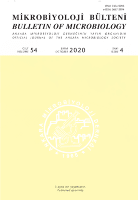
MIKROBIYOLOJI BULTENI
Exploring Innovations in Infectious Disease ResearchMIKROBIYOLOJI BULTENI, with ISSN 0374-9096, is a prestigious academic journal published by the ANKARA MICROBIOLOGY SOC, located in Ankara, Turkey. Established in 1973, this journal has been a vital conduit for disseminating research in the fields of Immunology, Microbiology, and Infectious Diseases, garnering a reputation as a significant contributor to the scientific community. The journal is currently ranked in the Q3 category within Immunology and Microbiology (miscellaneous), and Infectious Diseases, indicating its impactful presence amidst contemporary research. With access options that may be restricted, MIKROBIYOLOJI BULTENI actively welcomes submissions that advance the understanding of critical microbiological principles and practices, thereby supporting both national and international research efforts. Researchers, professionals, and students are encouraged to explore the latest findings shared in this journal, as it continually shapes the landscape of microbiology and infectious disease studies through its comprehensive and rigorous peer-reviewed publications.
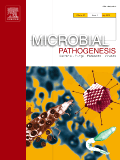
MICROBIAL PATHOGENESIS
Transforming Understanding into Therapeutic StrategiesMICROBIAL PATHOGENESIS, published by Academic Press Ltd - Elsevier Science Ltd, is a prominent journal in the fields of Infectious Diseases and Microbiology, with a notable impact factor and classified in the Q2 quartile for both categories as of 2023. Since its inception in 1986, this journal has provided a platform for the dissemination of cutting-edge research that enhances our understanding of microbial infections and their implications in health and disease. The journal is indexed in Scopus, ranking #80 among 344 in Infectious Diseases and #57 among 182 in Microbiology, underscoring its significant contribution to the scientific community. Although it operates under a traditional subscription model, the content is vital for researchers, professionals, and students focused on the dynamics of microbial pathogenesis and the development of innovative therapeutic strategies. The journal's comprehensive scope aims to foster advancements in this critical area of study, bridging the gap between laboratory research and clinical applications.
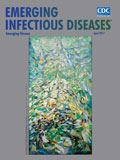
EMERGING INFECTIOUS DISEASES
Uncovering Insights to Combat Emerging Health ThreatsEmerging Infectious Diseases, published by the Centers for Disease Control and Prevention, is a leading open-access journal that has been dedicated to the field of epidemiology, infectious diseases, and medical microbiology since its inception in 1995. With an impressive impact factor placing it in the Q1 quartile rankings for multiple categories including Epidemiology, Infectious Diseases, and Medical Microbiology, this journal serves as a vital resource for researchers, practitioners, and students dedicated to combating the challenges posed by emerging infectious diseases. The journal's distinguished Scopus ranks further highlight its global influence, ranking #10 in Epidemiology, #26 in Infectious Diseases, and #13 in Medical Microbiology, all within the top percentiles. Accessible and targeted, Emerging Infectious Diseases publishes seminal research and reviews that contribute to the understanding and management of infectious diseases, ensuring that critical insights reach a broad audience. The journal encourages contributions that advance the scientific community’s knowledge and responses to public health challenges.
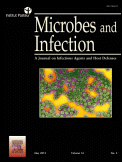
MICROBES AND INFECTION
Advancing the Frontiers of Microbial ScienceMICROBES AND INFECTION is a premier academic journal published by Elsevier, dedicated to the dynamic fields of immunology, infectious diseases, and microbiology. With a notable impact factor reflective of its high-quality research contributions, the journal is categorized in the Q2 quartile across these fields as of 2023. Based in France and operating since 1999, MICROBES AND INFECTION offers a platform for researchers, professionals, and students to disseminate and access cutting-edge findings that drive innovation and knowledge in microbial and infectious disease research. The journal is ranked impressively within the Scopus database, securing ranks such as #16 in Microbiology and #33 in Infectious Diseases, underscoring its high relevance in the scientific community. Subscribers to the journal can expect an array of articles, reviews, and original research, all designed to advance understanding and improve clinical practices in the fight against infectious agents. With its ongoing commitment to open access options, MICROBES AND INFECTION continues to foster global collaboration and information sharing in the pursuit of addressing pressing microbiological challenges.
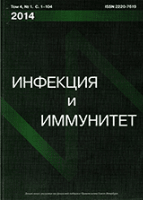
Infektsiya i Immunitet
Empowering research to combat infectious challenges.Infektsiya i Immunitet, published by the esteemed SANKT-PETERSBURG-NIIEM IMENI PASTERA, is a prominent open access journal that has been disseminating vital research findings since 2011. Focusing on the fields of immunology and infectious diseases, this journal serves as a critical platform for scholars, professionals, and students in the Russian Federation and beyond. With an ISSN of 2220-7619 and an E-ISSN of 2313-7398, it currently holds a Q4 ranking in 2023 for both Immunology and Infectious Diseases, along with notable quartile standings in related fields. Despite its emerging status, Infektsiya i Immunitet provides valuable insights and contributes to the growing discourse on immunity and infection prevention strategies, making it an essential resource for those invested in advancing knowledge and enhancing public health outcomes. Researchers can conveniently access its wealth of articles and studies that bridge theoretical understanding and practical implications in their respective domains.

Mediterranean Journal of Infection Microbes and Antimicrobials
Fostering global collaboration on microbial challenges.Mediterranean Journal of Infection Microbes and Antimicrobials is a distinguished open-access journal published by GALENOS PUBL HOUSE, dedicated to advancing the understanding of infectious diseases and microbiology. Since its inception in 2011, this journal has been a vital resource for researchers, professionals, and students interested in the intricate world of microbes and their impacts on human health. With its ISSN 2147-673X, the journal has progressively gained visibility, although it currently holds a Q4 ranking in multiple categories including Immunology and Microbiology, and Infectious Diseases for the year 2023. The journal operates from its headquarters in Istanbul, Turkey, and features a rich array of articles that contribute to the field’s body of knowledge. As a platform enhancing the accessibility of research, it invites submissions from global contributors to foster collaboration and innovation in tackling microbial challenges.